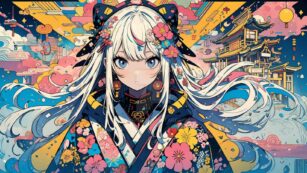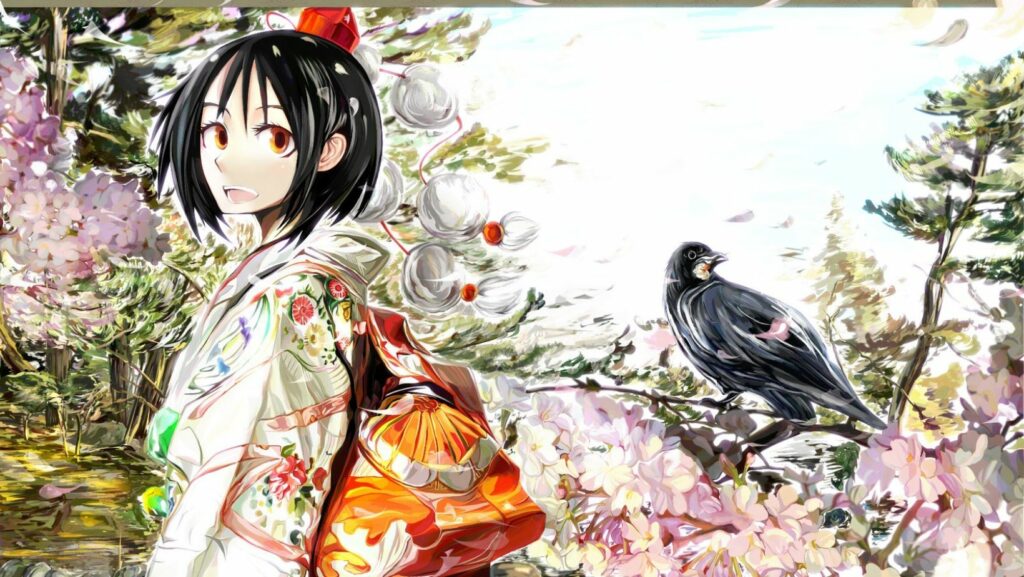Anime, with its vibrant art style and captivating storytelling, has become a global phenomenon. Originating in Japan, it’s more than just animated entertainment; it’s a cultural export that has influenced fashion, language, and even lifestyle worldwide. As anime’s popularity continues to soar, many wonder if it truly represents Japanese culture or if it’s simply a form of entertainment.
While anime draws heavily from Japanese traditions, mythology, and societal norms, it’s also a medium that explores universal themes and futuristic ideas. This blend of cultural specificity and global appeal raises intriguing questions about its role in representing Japan. Is anime a window into the soul of Japanese society, or has it evolved into something distinct?
Exploring anime’s roots and its impact on both domestic and international audiences can shed light on its cultural significance. This discussion delves into whether anime is a reflection of Japanese culture or a standalone artistic genre with its own identity.
Is Anime Japanese Culture
 Anime serves as a significant component of Japanese culture, influencing various aspects of national identity and global perceptions of Japan. Beyond entertainment, it involves historical and cultural references specific to Japan.
Anime serves as a significant component of Japanese culture, influencing various aspects of national identity and global perceptions of Japan. Beyond entertainment, it involves historical and cultural references specific to Japan.
Anime refers to animated works produced primarily in Japan. It emerged in the early 20th century, initially inspired by Western animation. Osamu Tezuka, known as the “God of Manga,” played a pivotal role in shaping modern anime through his works like “Astro Boy.” Rooted in manga, anime’s narrative style and character design often reflect Japanese society and history.
Anime has evolved, expanding beyond traditional boundaries to cover diverse genres. Themes such as samurai honor, Shinto beliefs, and Japanese folklore remain prevalent, yet anime has embraced universal storylines appealing to a global audience. This progression highlights anime’s adaptability and its enduring essence as a facet of Japanese culture.
Cultural Significance of Anime in Japan
Anime, an integral part of Japan’s cultural fabric, holds a significant place in their entertainment and media landscape. Its impact extends beyond mere entertainment, influencing various aspects of Japanese society and identity.
Historical Influence
 Anime’s roots in Japan trace back to early 20th century art and entertainment. Influenced by traditional ukiyo-e prints and kamishibai storytelling, anime evolved alongside Western animation techniques introduced in the early 1900s. Pioneers like Osamu Tezuka advanced the medium post-World War II by integrating cinematic styles and complex narratives, setting the stage for anime’s global rise. This historical development highlights anime’s role in preserving and adapting Japanese artistic traditions.
Anime’s roots in Japan trace back to early 20th century art and entertainment. Influenced by traditional ukiyo-e prints and kamishibai storytelling, anime evolved alongside Western animation techniques introduced in the early 1900s. Pioneers like Osamu Tezuka advanced the medium post-World War II by integrating cinematic styles and complex narratives, setting the stage for anime’s global rise. This historical development highlights anime’s role in preserving and adapting Japanese artistic traditions.
Anime serves as a versatile platform for cultural expression. Representing diverse aspects of Japanese life, it incorporates folklore, historical events, and contemporary issues. From classic samurai tales to futuristic dystopias, anime reflects Japan’s past and present. It also portrays everyday lifestyle, contributing to a shared cultural understanding both domestically and internationally. Through various genres and storylines, anime reinforces Japan’s cultural identity as both traditional and innovative in nature.
Anime as a Global Phenomenon
Anime’s vibrant art and imaginative storytelling have captivated audiences worldwide. Its universal themes and cultural references foster international appeal.
International Popularity
Anime reaches audiences globally, transcending language and cultural barriers. Popular series like “Naruto,” “Dragon Ball,” and “Attack on Titan” attract massive followings across diverse regions. Streaming services such as Crunchyroll and Netflix offer extensive anime libraries, increasing accessibility and broadening its fan base. This global reach enables anime conventions and fan communities to thrive internationally, uniting fans in celebrating their shared passion.
Debating Anime as Japanese Culture
 Anime’s journey from a niche art form to a global sensation underscores its complex relationship with Japanese culture. While it undeniably incorporates traditional Japanese elements, its universal appeal and thematic diversity challenge the notion of it being solely a cultural export. As anime continues to evolve, it serves both as a reflection of Japan’s rich heritage and a dynamic platform for storytelling that resonates worldwide. The debate over whether anime is an intrinsic part of Japanese culture or a standalone genre remains vibrant, inviting audiences to explore its multifaceted nature. Ultimately, anime’s ability to adapt and connect with diverse audiences ensures its place as a significant cultural phenomenon.
Anime’s journey from a niche art form to a global sensation underscores its complex relationship with Japanese culture. While it undeniably incorporates traditional Japanese elements, its universal appeal and thematic diversity challenge the notion of it being solely a cultural export. As anime continues to evolve, it serves both as a reflection of Japan’s rich heritage and a dynamic platform for storytelling that resonates worldwide. The debate over whether anime is an intrinsic part of Japanese culture or a standalone genre remains vibrant, inviting audiences to explore its multifaceted nature. Ultimately, anime’s ability to adapt and connect with diverse audiences ensures its place as a significant cultural phenomenon.

